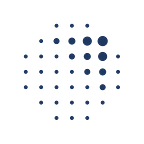ESG and the Built Environment: Decarbonization Consultants and Retrofitters to the Rescue
As part of the upcoming Singularity Strategies’ rebalancing, we spoke to Tyson Soutter, Managing Director EMEA & APAC for Clockworks Analytics, on the state of Internet of Things (IoT) in the built environment. While decarbonization efforts in this space have been mostly focused on measuring carbon footprints, the retrofitting of buildings has become one of the growth drivers worth focusing on. Read about the rise of Decarbonization Consultants and why (some) sensors are a great buy.
Every six months, we map the global innovation landscape and re-evaluate the status quo: Which innovations have become commoditized, which might materialize in the future and make the watch-list, and which find actual applications in markets today? Insights from the Singularity Think Tank (STT), a global network of innovation experts, play a central role in this process.
Decarbonization refers to the process of reducing carbon dioxide (CO2) emissions, primarily those resulting from human activities like energy production, transportation, and industrial processes. In the context of the built environment, decarbonization focuses on minimizing the carbon footprint of buildings, infrastructure, and urban spaces through various strategies. These include improving energy efficiency, transitioning to renewable energy sources (such as solar, wind, and geothermal), adopting low-carbon materials, and implementing sustainable construction practices.
Consultants and solution providers help kickstart ESG actions
“Climate-related investments have seen a noticeable drop down to 2020 levels, with a 20% decline year-over-year,” Soutter states. This development seems at odds with companies facing increasing pressure to achieve their short-term sustainability targets. Against this trend, however, investment interest in built environment related solutions has gained traction, with capital flowing into three main areas: ESG reporting tools, decarbonization consulting, and the modernization (“retrofitting”) of energy inefficient buildings.
“Most of the investments that companies have made in transitioning towards greater energy efficiency and lowering their carbon footprint has focused on measuring these carbon footprints rather than taking actionable steps to reduce them,” Soutter comments. “While it makes sense that companies would need to identify the areas for improvement first, they seem to be several steps behind when it comes to actually moving the needle.”
Another important consideration is the increasing regulatory complexity involved in navigating sustainability targets, which has led to a surge in demand for decarbonization consultants. Both large and specialized consulting firms are actively expanding their capabilities in this area, hiring aggressively to meet market needs.
When it comes to specialized service providers for energy efficient buildings and public infrastructures, companies such as Ameresco (SI-Score: 84) and Vinci SA (SI-Score: 28) stand to benefit from the growing need for design, installation, and operation solutions.
Upgrading of buildings drives demand for innovative IoT sensors and HVAC systems
“Smart Building Technologies have been another beneficiary, as they are crucial for gathering and analyzing data for reporting as well as for making the actual changes that ultimately affect a building’s energy efficiency,” Soutter explains. “While commercial real estate has been through a bit of a slump, the demand for A-grade, top-tier buildings continues to outstrip supply. That demand is driving investments in retrofitting of existing buildings as well as greenfield construction projects,” explains Soutter.
Retrofitting involves the upgrading of existing and outdated systems that typically offer little opportunities for monitoring and controlling a building’s energy use. Old systems are replaced by technologies that carefully measure critical parameters such as occupancy and temperature on a local level. The retrofitting trend — which involves both older commercial buildings being converted into modern residential spaces and upgrades toward more energy-efficient commercial properties — creates opportunities both for technology suppliers and real-estate service providers.
“Retrofitting has become far more complex than it was in the past, when it focused primarily on cosmetic upgrades to facades and interiors. Nowadays, such upgrades require substantial changes to a building’s energy infrastructure,” says Soutter. With 40–70% of commercial building emissions coming from Heating Ventilation and Air Conditioning (HVAC) equipment and systems, and new regulations that shorten the life-cycle of installed equipment, building owners and operators are forced to replace relatively recently installed systems. This push drives demand for more energy efficient HVAC systems and a host of sensors and network connectivity solutions that enable such systems to be effectively monitored and controlled. Within the Singularity Index™, HVAC players such as Trane Technologies (SI-Score: 100) and SPX Technologies (SI-Score: 75) and smart sensor producers such as Siemens (SI-Score: 53) are among the beneficiary innovators in the domain of energy-efficient heating and cooling equipment and systems.
About Tyson Soutter
Tyson Soutter is an IoT and built environment expert with over 15 years of experience covering the full building life cycle of design, development, and operations. He is Managing Director of EMEA & APAC for Clockworks Analytics, a leader in Fault Detection & Diagnostics which was founded in 2008 within MIT’s Building Science Department.
About The Singularity Group
The Singularity Group (TSG) quantifies Applied Innovation for investors in listed equities. TSG is the initiator of the Singularity Index™ (Bloomberg ticker: NQ2045), a global, all-sector benchmark and gold standard for Applied Innovation. The Singularity Strategies include The Singularity Fund (UCITS Lux), Singularity US Innovation Leaders (AMC), Singularity Small&Mid (UBS AMC), Singularity Reindustrialization (UBS AMC), and LUKB Smart Farming (AMC).
The Swiss investment advisory boutique works closely with the Singularity Think Tank, a network of entrepreneurs and academics with deep insights into innovation value chains. Their input forms the foundation of TSG’s proprietary innovation scoring system that quantifies the engagement of companies within a set of curated Singularity Sectors worldwide across all market capitalizations and industries. The Singularity Innovation Score (SI-Score) defines how much value listed companies are generating through Applied Innovation.
More: singularity-group.com
